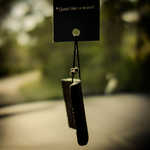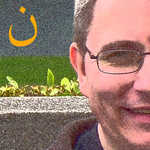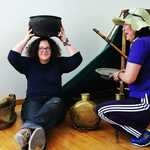Above is the picture I posted, of course on Facebook, to reassure my family and friends in the US that, although transplanted to Australia, I have not forsaken the practice of Thanksgiving. My partner Paul prepared what might be considered a true Native American version of the holiday feast: roast duck, wild rice, roast vegetables (sadly, it’s spring in Australia, so there’s no corn on the cob to be had), and hand picked blackberries in a delicious crisp, (baked in a modern oven rather than an earthen pit).
I’ve always thought of Thanksgiving as the best of the official holidays in Canada and the US. As many have observed before me, Christmas has been utterly spoiled, turned from a day of gift giving and spiritual connection into a day of gift receiving and general greed. The Christmas tree (and the ubiquitous Santa Claus) often displaces the focus from the act of giving to the moment of receiving when, at least in the more affluent homes, one is surrounded by joyous piles of the latest in consumables. I wonder how much of the climate crisis is directly engendered by the extravagant excesses of so-called Christmas joy. Of course, shopping has become the true spirit of Christmas, the summit of the capitalist experience. Bah Humbug indeed!
Thanksgiving, on the other hand, still has possibilities, stemming - as it does - from the Harvest festivals that are common to societies around the world. The origin of the holiday in North America is certainly with the First Nations and Native Americans, not with the 1621 pilgrims as is usually set out in school textbooks. Ancient traditional celebrations of many tribes can be cited as the true forerunners of modern Thanksgiving Day. This is also true of Christmas because gift giving was always a significant part of indigenous culture in the Americas.
In 1621, the Wampanoag feast, known apparently as Nikkomosachmiawene, or Grand Sachem’s Council Feast, was brought to the struggling Pilgrims and sparked a day in which the starving Pilgrims became truly grateful. Today, after centuries of social and cultural oppression, Native Americans are somewhat more circumspect about their celebrations of Nikkomosachmiawene. I am told that there is a plaque on Cole Hill in Plymouth, Mass., that reads:
“Since 1970, Native Americans have gathered at noon on Cole’s Hill in Plymouth to commemorate a National Day of Mourning on the US Thanksgiving Holiday. Many Native Americans do not celebrate the arrival of Pilgrims and other European settlers. To them, Thanksgiving Day is a reminder of the genocide of millions of their people, the theft of their lands, and the relentless assault on their culture. Participants in a National Day of Mourning honor Native ancestors and the struggles of Native peoples to survive today. It is a day of remembrance and spiritual connection as well as a protest of the racism and oppression which Native Americans continue to experience.”
Other moments in Aireys Inlet
-
Burning, poem, Books
Burning the Books
in Aireys Inlet, Australia -
Today's Sunrise, poem
Beginning or End?
in Aireys Inlet, Australia -
Verses for Emlyn, Grandfathers, family fun
Grandad Wade
in Aireys Inlet, Australia -
Verses for Emlyn, Roses, flowers
Beauty
in Aireys Inlet, Australia -
The Small Things, Depression
Small blessings #4: Just a touch of rose.
in Aireys Inlet, Australia -
Verses for Emlyn, birds, bird bath
Seven
in Aireys Inlet, Australia -
Atheism, Today's Sunrise
Glory
in Aireys Inlet, Australia -
Today's Sunrise, Today's Coffee, health
Morning Cuppa
in Aireys Inlet, Australia -
Verses for Emlyn, kangaroo, wildlife
Alert
in Aireys Inlet, Australia










